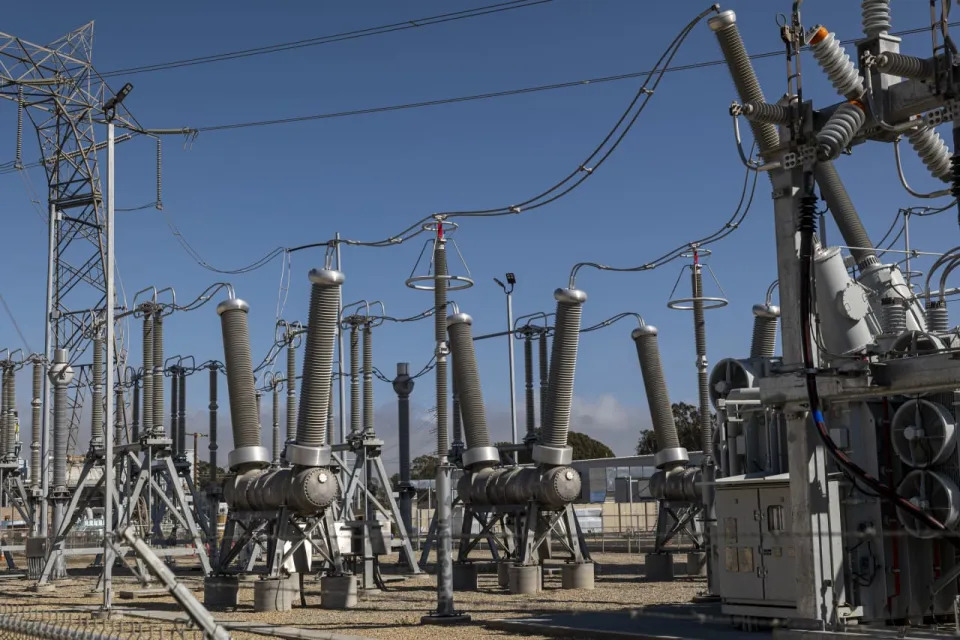Hedge-fund firms such as Coatue Management that are known for investing in next-generation technology companies have lately been piling into a sleepier sector.
Old-school power companies such as Vistra ( VST ), Constellation Energy ( CEG ) and Talen Energy ( TLN ) have become darlings among hedge-fund firms thanks to their starring role in the artificial-intelligence boom. Such companies command the scarcest resource in the generative-AI supply chain: the extra electricity that fuels the data centers needed to train large language models and answer prompts from users of AI chatbots such as ChatGPT.

The phenomenon has made power generators some of the best-performing stocks in the S&P 500 ^GSPC ) this year—shares of Vistra have more than tripled in price—and has boosted hedge funds’ returns.
Coatue, whose founder, Philippe Laffont, muses about the coming of humanoid AI robots, owned stakes in Vistra and Constellation worth about $2.3 billion at the end of September, according to a securities filing. Coatue’s flagship fund gained about 12% through the end of October, a person familiar with the matter said.
At Steve Mandel’s Lone Pine Capital, a $17 billion investment firm with a large tech and startup portfolio, gains on positions in Vistra, Constellation and Talen accounted for about one-fifth of its main hedge fund’s nearly 22% net return this year through the end of September, according to documents viewed by The Wall Street Journal.
Dan Loeb’s Third Point counts Amazon.com, Meta Platforms and chip maker Taiwan Semiconductor Manufacturing among its top five stock positions as part of a bet on the transformational impact of AI. But the $12 billion firm’s best-performing publicly traded holding is Vistra, helping Third Point’s flagship fund generate a 27% return this year through the end of November.
The total return of the S&P 500 is about 28% through the end of November. Broad hedge-fund indexes are up about 10% in the same span.
Hedge funds that specialize in tech, media and telecommunications thrived in 2020 and much of 2021 when the Covid-19 pandemic supercharged demand for e-commerce and other digital services. They then suffered in 2022 when rising interest rates cooled valuations for tech companies.

It wasn’t long ago that the hedge funds interested in power producers were those that traded in distressed securities. Stagnant power demand, overbuilding and high levels of debt pushed many energy companies, including Vistra’s predecessor , into bankruptcy.
Now, after a decade of flat growth, U.S. power demand is set to soar in the coming years. Some funds started paying attention to power producers after noticing that trends such as the proliferation of electric vehicles and the reshoring of manufacturing would boost demand for energy faster than supply could keep up.
The AI frenzy took that to a whole new level: It takes around six to 10 times as much electricity to process a ChatGPT query compared with a google search, according to Goldman Sachs research. Starting earlier this year, cloud-computing providers such as Amazon.com and Microsoft cut special deals with power generators to secure enough juice for their AI and data-center ambitions at what are thought to be premium prices, making more investors take notice.
Only certain power companies stand to benefit. Those active in deregulated markets, such as Texas and parts of the mid-Atlantic region, can charge the market price for power. Those with so-called dispatchable power, mostly natural-gas and nuclear plants that can quickly and reliably produce electricity when needed, are particularly prized.
Interest in this trade has spread beyond tech-focused hedge funds. Vistra joined Goldman Sachs’s “Hedge Fund VIP” list, a basket of popular holdings among the bank’s clients, earlier this year. Macro hedge funds that bet on big-picture market moves are also large participants in the AI power trade: Rallies in Vistra and Constellation helped Rob Citrone’s Discovery Capital Management gain about 47% through November in its main fund and David Rogers’s Castle Hook Partners, which also has a stake in turbine maker GE Vernova, gain more than 60% in its main fund, people familiar with the matter said.
Recent and future hedge-fund launches are looking to get in on related themes, people familiar with the matter said. Valiant Capital Management, a stock-picking hedge-fund firm, pitched Constellation at the Sohn San Francisco investment conference in October and recently started a special-purpose vehicle focused on companies working on upgrading the U.S. electrical grid. A new BlackRock hedge fund, the Blackrock Power and Energy Navigator fund, is looking to debut early next year.
Meanwhile, some energy hedge funds are exiting positions in certain power companies after the newcomers bid up valuations. Electron Capital Partners, a $3 billion firm that bets on and against utility and renewables stocks, sold its Vistra shares in the third quarter, according to a securities filing. Its flagship fund is up 23% through November, according to an investor document viewed by the Journal.
Write to Peter Rudegeair at peter.rudegeair@wsj.com






